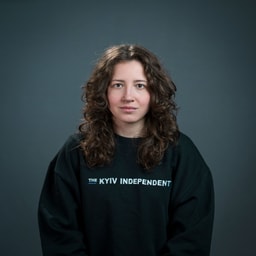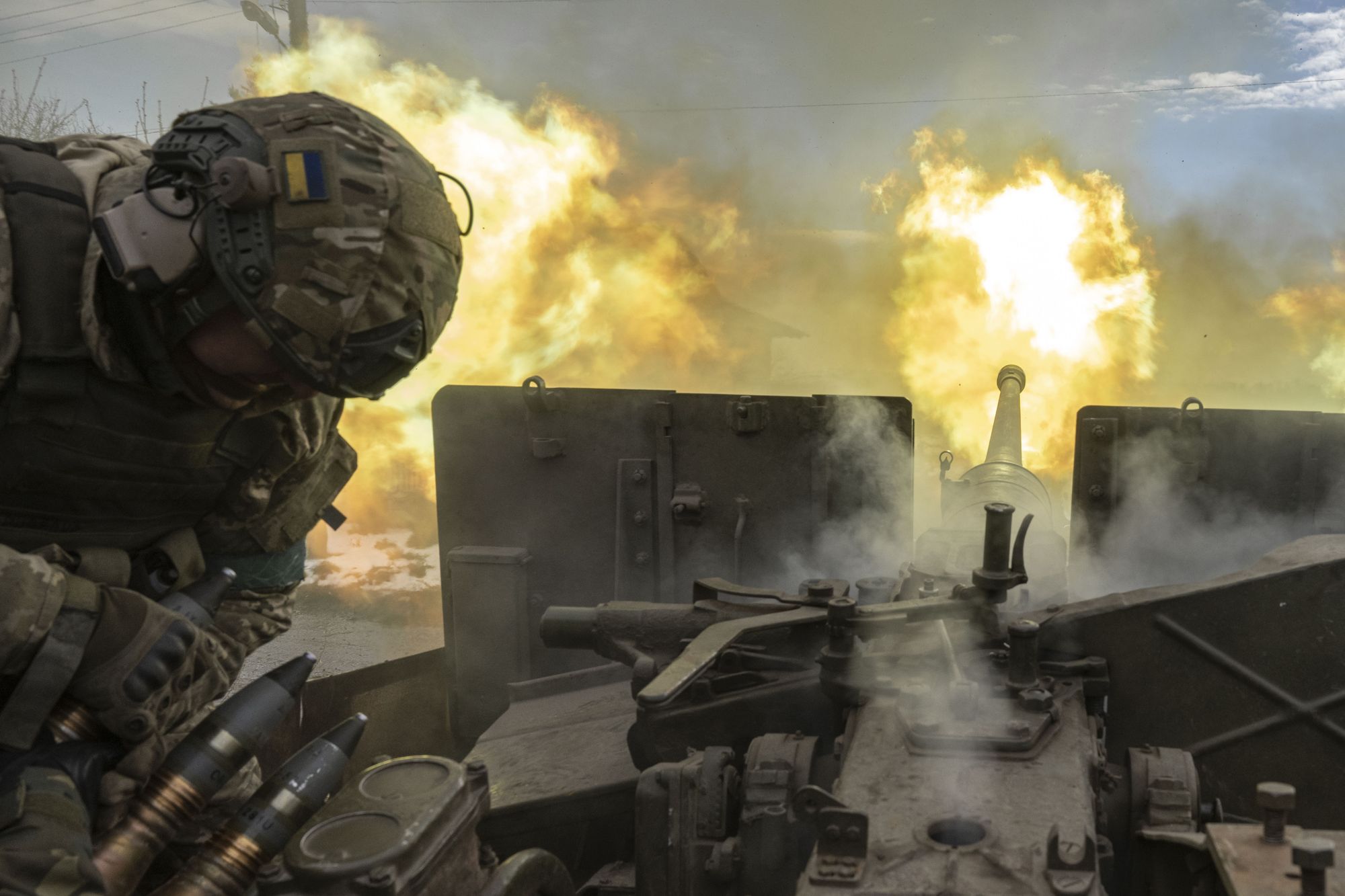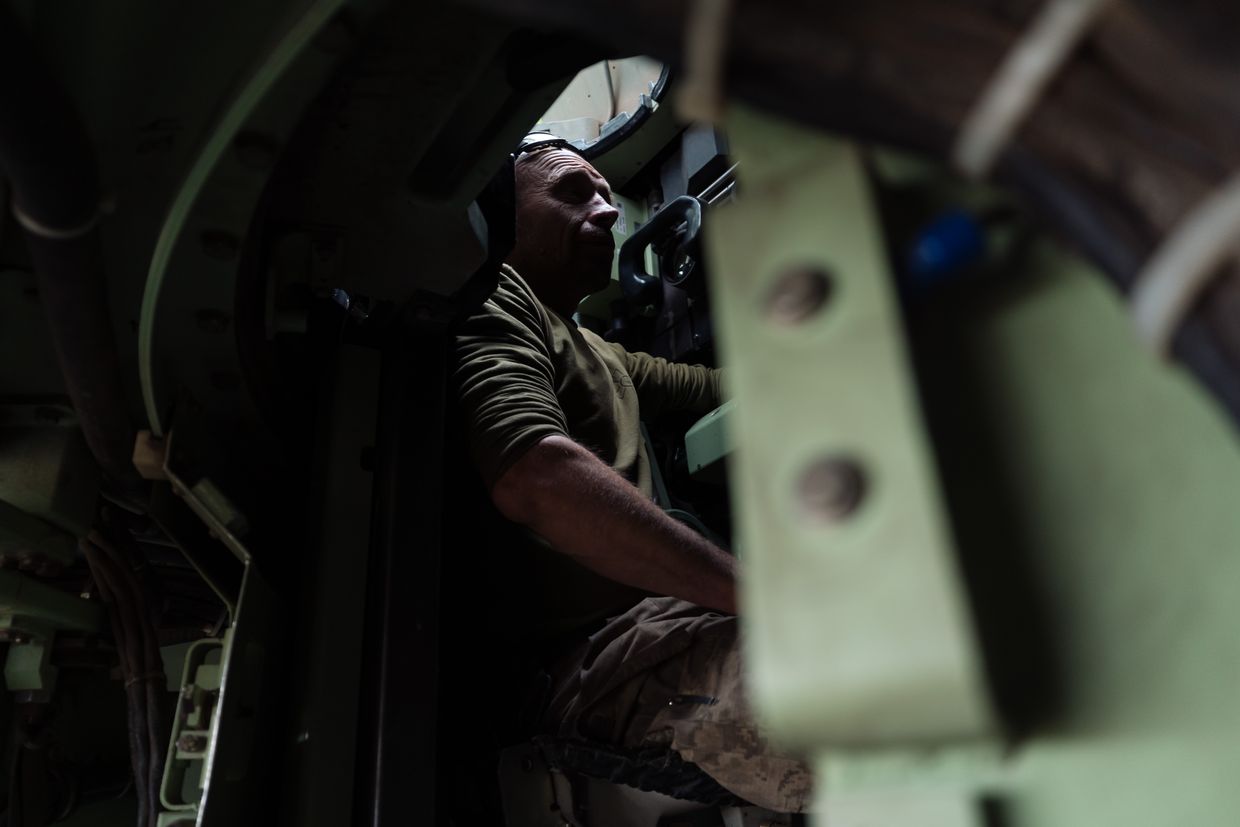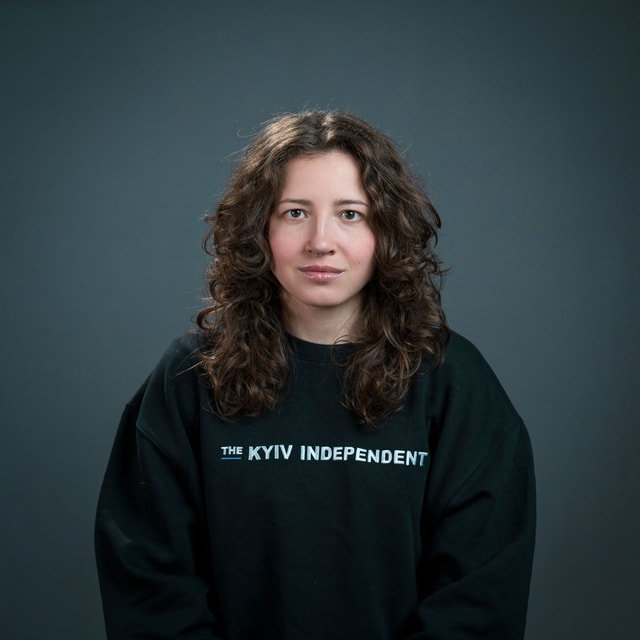Ex-Estonian president: If NATO ambiguous about conditions for Ukraine, Russia won’t know what to prevent

Editor’s note: This interview has been edited and condensed for clarity.
Former Estonian President Kersti Kaljulaid has been among the most vocal supporters of Ukraine since the beginning of Russia’s full-scale invasion in February 2022, just four months after her term came to an end.
From public talks at global conferences to behind-the-scenes advocacy, Kaljulaid has been rallying for international aid for Ukraine, as well as for the country’s integration into both the European Union and NATO.
Her President Kaljulaid Foundation (PKF) has raised 340,000 euros to aid journalists in Ukraine and more than 50,000 euros for education in war-torn areas.
Kaljulaid just recently returned to Estonia from Ukraine, where she spoke at the Yalta European Strategy (YES) conference on Sept. 8-9 in Kyiv.
She sat down for an interview with the Kyiv Independent in Tallinn on Oct. 10, right before joining the Kyiv Independent’s Deputy Chief Editor Toma Istomina for a public discussion about the role of Ukrainian media during war.
The Kyiv Independent: We’re speaking at what seems like a very uncertain time regarding the future of Western support for Ukraine in its struggle against Russia’s war of aggression. There’s the recent election in Slovakia favoring a party with a pro-Russian stance, the growing frustration toward supplying Ukraine with military aid in the U.S. Republican Party, and then, of course, the quarrel with Poland, which until recently was one of Ukraine’s most reliable allies. Do you think Ukraine should be concerned?
Kersti Kaljulaid: You described it in quite dark terms but I would also like to make a few other points. I was at the Yalta European Strategy Conference (YES) where a German general said without any hesitation, “Free Ukraine and victory means the 1991 borders.” That’s big coming from a German general. Similarly, if we look at the French reactions and French people's feelings, for example, about EU enlargement, they always used to be negative about it, however, public opinion had shifted towards Ukraine’s membership.
There are negatives, too, which is that politics in some European states interferes with people's stance on Ukraine help. In Slovakia, public support for Ukraine has been wavering. But in big EU countries like Germany and France, it is strong, which is very positive because politicians have much explaining to do to their people, but at the end of the day, they do what people support. This is how politics in democratic nations works. Therefore, as long as French or German populations don’t waiver (in their support for Ukraine), then I think you have absolutely no worries about European support. But it's constant work to react to the risks as they emerge.
And another significant risk that we now see is connected to the escalation between Israel and Hamas. Many people in Ukraine are concerned that maybe this will divert some help from Ukraine and toward Israel.
If you take a position that it is a separate conflict – then yes. But it’s actually quite easy to see that it suits the non-free world to join forces – Iran, Russia, China. I mean all those countries stick together like we stick together. And therefore it's not a separate conflict. It's the same.
I agree, but still, if some aid will go to Israel, does it mean that the West will have to cut their budgets for supporting Ukraine?
I don't think the risk of cutting the budget because of Israel is too big. The U.S. has been supporting Israel for a while. And if we need to add more capacity to produce ammunition, this kind of optics was already ongoing anyway, and it needs to continue, frankly speaking, because the capability of the defense industry in the free world is not enough. It’s not enough to cover Ukraine’s needs, it is not enough to cover additional needs, and it is not enough to cover the NATO alliance’s own needs. Everybody now realizes that the main threats are mostly economic. Russia is a big economy. The forces Israel is facing aren’t too powerful. Israel will most probably be able to overcome the situation themselves or with limited help from outside.

Speaking of the West’s defense industry capabilities, there has been a lot of frustration regarding the pace of military supplies to Ukraine, which had evidently affected Ukraine’s ability to counterattack Russia before it managed to build massive defensive lines, which are now extremely difficult to break through. At the beginning of the full-scale invasion, you once said that Europe can't move faster than Germany and France. Do you think they are still the bottleneck in providing aid faster?
They haven’t been a bottleneck, they have been in quite big drivers of what (Ukraine) has been getting. Yes, they were slow to get into gear but they got into gear. And again, quoting the YES conference, Germany said (they) are doing this at an accelerated speed. This is much more than the U.S. today sends. And if you think of Storm Shadows vs. ATACMS – Storm Shadows are there, doing damage, and these are provided by Europeans. I'm quite confident right now that the EU has also realized that with the unpredictability of American support, it's on us to take the responsibility. And I clearly see that this responsibility has been taken.
I think Europe is doing what it can. It's still haggling with the private sector about the exact guarantees that need to be given to the companies to increase production. And I'm really sorry that it is taking time. But I would say that European aid is in full gear now. I think we can be even positively surprised that this happened, but that doesn't mean that it shouldn't have happened quicker.
Yes, (taking time to) give Ukraine tanks gave the Russians time. This certainly has a role in this problem that we are not seeing quick advances now and many lives are lost because of that. There is no getting away from that (now). I really hope that we move quickly and speak less in the future.
Another way that the EU supports Ukraine is through sanctions aimed at weakening the Russian economy and defense capabilities. But foreign components, banned from entering Russia long ago, continue to be found in Russian weapons. And that's just one of the examples of sanctions’ ineffectiveness. You have been saying that you have no illusion that sanctions applied five years ago, or even a year ago, are still effective. What should the EU do to make them work?
First and foremost, you observe the flow of goods and if you notice that circulations go through some countries that are very close to Russia, you need to talk to them. Then either you apply sanctions on them or they stop this flow of goods into Russia. This is one thing that needs to be done.
Sanctions are a wonderful tool if you adapt them constantly. The sanctions that were applied in 2014, when the aggression broke out, nobody can even remember what they were because the economy is so powerful, and it always adapts. And then there are whole groups of goods that have not been sanctioned yet. There are maybe some for which there is no replacement, but for some, if you put them under sanctions, then a replacement could be found.
But you cannot expect the private sector to turn away from Russian goods all by themselves. Because those who make principled decisions will lose out the market power, they will lose clients.
So I think Europe should see whether there are goods and services groups that are not sanctioned and that should be sanctioned to keep people from trading with Russia.
There was a lot of frustration about the NATO summit in July because Ukraine did not get the concrete roadmap for membership that it was hoping for. Why did NATO decide against granting it?
In NATO, decision-making mechanics depends on member states. So if in 2008, it was the U.S. who was supportive of roadmaps for Ukraine and Georgia, then this time that support was not forthcoming. The support came instead from France. So the situation has changed but the outcome was more or less still the same.
I can see that NATO was strenuously trying to achieve something for Ukraine. But because member states were not supportive, we couldn't move further. That's the problem with multilateral bodies. If one party doesn’t agree, you can’t move.
So what we will now do is continue to convince everybody that the only guarantee to Ukraine, and by the way the safest and cheapest from the U.S.’s viewpoint, is NATO. Because all of us contribute to NATO as well. In all alternative models, we have to rely heavily on the U.S. That must have played a role in France’s calculation.
If we speak about the actual criteria that Ukraine is supposed to meet...
Ukraine doesn't need any military roadmap to join NATO. Somebody jokingly said that we should have a roadmap to join Ukraine.
Do you agree with that?
I do to a certain extent because the Ukrainian army will be an asset, as will Ukrainian knowledge and the library of tools (Ukraine) has been using in this war.
Some experts from Ukraine said that when the war is over actually the countries who oppose giving Ukraine membership at the moment might be the first ones to invite Ukraine.
I agree, but I don't think we should then wait and do nothing diplomatically until the war is over. I think we should keep pushing.

As for the membership itself, not just the roadmap, there is a consensus among experts that it's out of the question that Ukraine will be granted membership while the war goes on. Is there any possibility it could happen before the war is over?
I still hope that this aggression will end in a year or year and a half. This means that we only have one NATO summit to go before that (timeframe). So let's not concentrate on “Can we join while it's not over.”
First, we need to get the Russian army out of Ukraine. That's the first objective, and then we will see about all the rest. Right now let's concentrate on getting as much support as quickly as possible to get the Russians out.
If it was clearly said, for example, that the war has to be over (for Ukraine to join NATO) – but that was never said. You want to be more ambiguous because Russia is your neighbor and will keep shelling once a month into your territories far too easily. If you stipulate that there cannot be any (military) activities before you can join, then this is exactly what (Russia will do). So we want to be ambiguous about the conditions that would allow for membership.
Note from the author:
Hi there. This is Toma Istomina, deputy chief editor at the Kyiv Independent. Thank you for reading this interview. You don't see my byline often because I mostly edit other journalists' stories you read on our website, but I have been working tirelessly since day one of the Kyiv Independent and even more tirelessly since the beginning of Russia's full-scale invasion of Ukraine. It has been incredibly difficult to live in a country at war and see all the atrocities Russian forces brought here. This war is a matter of existence for Ukrainians, which is why we continue to fight. But it means the world to have international support and not feel alone in this fight. Please consider supporting the Kyiv Independent by becoming our memeber.













